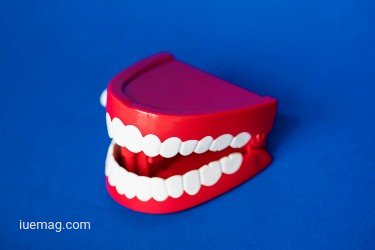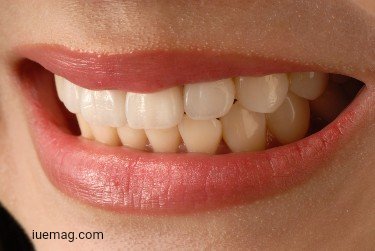

4 Common Causes Of A Bad Bite And What To Do About It
 Also known as malocclusion, a bad bite can occur when your upper and lower teeth don’t fit together properly. This is a misalignment problem that, if left untreated, can have serious consequences for oral health and well-being. As a result, your teeth may not perform vital functions, such as chewing. Moreover, a bad bite may increase your risk of dental problems, such as gum disease and even jaw disorders. There are many different types of bad bite and various dental reasons why you may experience this issue. Below you will find some of the most common causes of a bad bite and information on what you can do about this condition.
Also known as malocclusion, a bad bite can occur when your upper and lower teeth don’t fit together properly. This is a misalignment problem that, if left untreated, can have serious consequences for oral health and well-being. As a result, your teeth may not perform vital functions, such as chewing. Moreover, a bad bite may increase your risk of dental problems, such as gum disease and even jaw disorders. There are many different types of bad bite and various dental reasons why you may experience this issue. Below you will find some of the most common causes of a bad bite and information on what you can do about this condition.Genetics
Some malocclusions are caused by genetics and a person may have a bad bite if it runs in their family. This trait can affect the growth and size of your jaw. For instance, the upper and lower jaws could grow unevenly, and as a result, one will be larger than the other. Also, if a child inherits large teeth from one parent and a small jaw from the other one, it is likely that their teeth will not be able to fit together well. In other cases, your tongue posture may lead to a bad bite, as the tongue will persistently press against the teeth, which will move them out of position.
Jaw Misalignment
Apart from misaligned teeth, jaw alignment problems can be another cause of a bad bite. However, the average person may not be able to tell that their jaw is misaligned. Therefore, it is crucial to learn how to tell if you have a bad bite and what can be done to resolve this. Using jawline gum can help engage and strengthen jaw muscles, potentially contributing to better jaw alignment over time.
Straight My Teeth offer personalized advice and treatment plans for your jaw concerns.
 They provide reliable and effective at-home teeth straightening options in the UK, which can help you improve your smile and dental health. There is no need for ongoing dental visits, as you can start your treatment at your own convenience.
They provide reliable and effective at-home teeth straightening options in the UK, which can help you improve your smile and dental health. There is no need for ongoing dental visits, as you can start your treatment at your own convenience.Impacted Teeth
In general, a tooth can be affected when there is not enough space for it in the mouth. This can either occur due to genetics or orthodontic treatment. As a result, a tooth has been blocked from breaking through the gum. You may not experience any obvious symptoms and this is why it is important to visit your dentist’s office regularly. However, an impacted tooth may also cause red, swollen, or bleeding gums, as well as a bad taste in your mouth. For example, wisdom teeth can become impacted, if they emerge at an angle or only partially emerge.
Bad Oral Habits
Other causes may be associated with injuries or bad oral habits in the developmental years. These habits or conditions can alter the structure and shape of the jaw, which in turn can affect the teeth.
For example, some examples may be nail biting, thumb-sucking, lip sucking, tongue thrusting, or teeth clenching. Therefore, parents should discourage these types of bad habits so that children can grow up with healthier bites. Even if one of these habits causes a bad bite, it is still crucial to breaking it to prevent malocclusion from coming back after orthodontic treatment.
Copyrights © 2026 Inspiration Unlimited - iU - Online Global Positivity Media
Any facts, figures or references stated here are made by the author & don't reflect the endorsement of iU at all times unless otherwise drafted by official staff at iU. A part [small/large] could be AI generated content at times and it's inevitable today. If you have a feedback particularly with regards to that, feel free to let us know. This article was first published here on 7th May 2022.
Want to Publish About Your Business / Achievements
Let's Discuss Right Away!

All chats are end-to-end encrypted by WhatsApp and won't be shared anywhere [won't be stored either].

